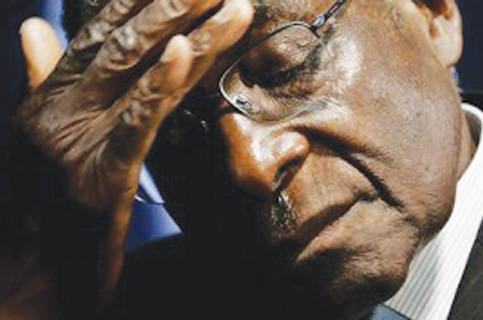
THE Constitutional Court (Concourt) on Wednesday made a ground-breaking ruling, declaring sections of the Criminal Law (Codification and Reform) Act criminalising publicly undermining the authority of the President and communicating falsehoods unconstitutional.
Concourt judges, including Deputy Chief Justice Luke Malaba, were unanimous that Section 33 (a) (ii), which criminalises the undermining of the authority of the President and Section 31 (a) (iii) to do with communicating false statements prejudicial to the State had no place in a democratic society.
The ruling followed an appeal by Alpha Media Holdings editors Constantine Chimakure and Vincent Kahiya who were in 2010 brought before the courts for lifting the lid on the identity of State security agents fingered in the torture of human rights defenders.
Another case that led to striking off the section that criminalises the undermining of the authority of the President followed an appeal by Bulawayo-based artist Owen Maseko who was charged for staging an exhibition on Gukurahundi.
All the cases were under the Criminal Code.
Journalists should have felt as sense of relief following the landmark judgment as many of them have been harassed by law enforcement agents who are quick to use Section 31 (a) (iii) to shield themselves from scrutiny.
However, it is the application of Section 33 (a) (iii) that had become a great source of concern for all Zimbabweans as no week passes by without a story of someone being arrested for allegedly insulting or undermining President Robert Mugabe’s authority.
The Zimbabwe Lawyers for Human Rights says at least 80 such cases are before the courts. Some of these cases arise from beer hall talk and there is no reason why State resources are wasted pursuing such people.
- Chamisa under fire over US$120K donation
- Mavhunga puts DeMbare into Chibuku quarterfinals
- Pension funds bet on Cabora Bassa oilfields
- Councils defy govt fire tender directive
Keep Reading
Justice Malaba put it very well when he berated prosecutors for wasting the time of the courts by bringing such cases, which he said demeaned the Office of the President.
The publicity given to such cases, most people would agree, actually causes more harm to the image of the country’s leader than those people who utter such statements under the influence of alcohol.
It is our belief that the ruling by the Concourt signals the beginning of a new era in Zimbabwe thanks to the adoption of a new Constitution this year that ushered in the new court.










